11 start with E start with E
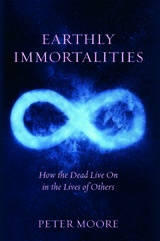
To what extent does the meaning we find in our lives depend upon the assumption there will always be a new generation to continue the human adventure? What would it be like if science were able to extend life indefinitely, and is this something already enshrined in the doctrine of reincarnation? Can we solve our anxieties about mortality by learning that life is worth living precisely because we do not live forever? In a generous and eloquent account, these and more are the questions Earthly Immortalities seeks to answer.

Globalisation has created an interconnected world, but has not diminished violence, militarism and inequality. The Economics of Killing describes how the power of global elites, entrenched under globalisation, has created a deadly cycle of violence.
In this groundbreaking work, Vijay Mehta shows how attempts at peaceful national development are routinely blocked by Western powers. He locates the 2008 financial crisis in US attempts to block China's model of development. He shows how Europe and the US conspire with regional dictators to prevent countries from developing advanced industries, and how this system has fed terrorism.
Mehta argues that a different world is possible, based on policies of disarmament, demilitarisation and sustainable development. This original and thought-provoking book will be of great interest to anyone concerned about the consequences of endless war fuelled by the West.
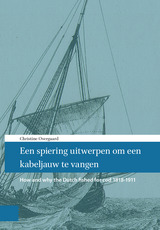

The central argument of this book is that journalists and audiences can no longer afford to pretend that all information is competing on an even playing field and that it is enough for journalists to simply publish “the facts.” Effective Journalism attempts to explain the reality, rather than the ideal, of how people seek and process information, and what journalists and their audiences can do to try to create an informed public in the face of that reality.
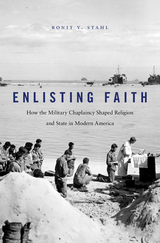
A century ago, as the United States prepared to enter World War I, the military chaplaincy included only mainline Protestants and Catholics. Today it counts Jews, Mormons, Muslims, Christian Scientists, Buddhists, Seventh-day Adventists, Hindus, and evangelicals among its ranks. Enlisting Faith traces the uneven processes through which the military struggled with, encouraged, and regulated religious pluralism over the twentieth century.
Moving from the battlefields of Europe to the jungles of Vietnam and between the forests of Civilian Conservation Corps camps and meetings in government offices, Ronit Y. Stahl reveals how the military borrowed from and battled religion. Just as the state relied on religion to sanction war and sanctify death, so too did religious groups seek recognition as American faiths. At times the state used religion to advance imperial goals. But religious citizens pushed back, challenging the state to uphold constitutional promises and moral standards.
Despite the constitutional separation of church and state, the federal government authorized and managed religion in the military. The chaplaincy demonstrates how state leaders scrambled to handle the nation’s deep religious, racial, and political complexities. While officials debated which clergy could serve, what insignia they would wear, and what religions appeared on dog tags, chaplains led worship for a range of faiths, navigated questions of conscience, struggled with discrimination, and confronted untimely death. Enlisting Faith is a vivid portrayal of religious encounters, state regulation, and the trials of faith—in God and country—experienced by the millions of Americans who fought in and with the armed forces.
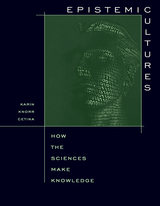
How does science create knowledge? Epistemic cultures, shaped by affinity, necessity, and historical coincidence, determine how we know what we know. In this book, Karin Knorr Cetina compares two of the most important and intriguing epistemic cultures of our day, those in high energy physics and molecular biology. Her work highlights the diversity of these cultures of knowing and, in its depiction of their differences--in the meaning of the empirical, the enactment of object relations, and the fashioning of social relations--challenges the accepted view of a unified science.
By many accounts, contemporary Western societies are becoming "knowledge societies"--which run on expert processes and expert systems epitomized by science and structured into all areas of social life. By looking at epistemic cultures in two sample cases, this book addresses pressing questions about how such expert systems and processes work, what principles inform their cognitive and procedural orientations, and whether their organization, structures, and operations can be extended to other forms of social order.
The first ethnographic study to systematically compare two different scientific laboratory cultures, this book sharpens our focus on epistemic cultures as the basis of the knowledge society.

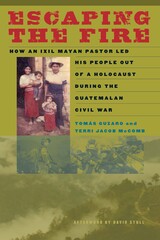
During the height of the Guatemalan civil war, Tomás Guzaro, a Mayan evangelical pastor, led more than two hundred fellow Mayas out of guerrilla-controlled Ixil territory and into the relative safety of the government army's hands. This exodus was one of the factors that caused the guerrillas to lose their grip on the Ixil, thus hastening the return of peace to the area.
In Escaping the Fire, Guzaro relates the hardships common to most Mayas and the resulting unrest that opened the door to civil war. He details the Guatemalan army's atrocities while also describing the Guerrilla Army of the Poor's rise to power in Ixil country, which resulted in limited religious freedom, murdered church leaders, and threatened congregations. His story climaxes with the harrowing vision that induced him to guide his people out of their war-torn homeland.
Guzaro also provides an intimate look at his spiritual pilgrimage through all three of Guatemala's main religions. The son of a Mayan priest, formerly a leader in the Catholic Church, and finally a convert to Protestantism, Guzaro, in detailing his religious life, offers insight into the widespread shift toward Protestantism in Latin America over the past four decades.
Riveting and highly personal, Escaping the Fire ultimately provides a counterpoint to the usual interpretation of indigenous agency during the Guatemalan civil war by documenting the little-studied experiences of Protestants living in guerrilla-held territory.
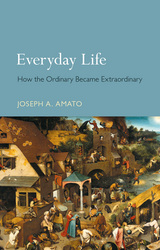
Amato examines the common facts and occurrences in lives from all spheres, whether of a pauper or a noble, a criminal or state official, or a lunatic or a philosopher. Such facts include basic aspects of human existence, such as play, work, conflict, and healing, as well the logistics of survival, such as housing, clothing, cleaning, cooking, animals, plants, and machines. Tracing core historical developments like efficiency of production and greater mobility, Amato shows how we became modern in everyday ways. He explores how, paradoxically, commerce, technology, design, industrialization, nationalism, and democratization—which have so undercut traditional culture and have homogenized, centralized, and secularized masses of people—have also profoundly transformed daily life, affording citizens with materially improved lives, individual rights, and productive and rewarding expectations.
A wide-ranging account of lives throughout history, this book gives us new insights into our own condition, showing us how extraordinary the ordinary can be.

By bringing industry studies and fan studies into the conversation, Stanfill looks closely at just who exactly the industry considers “proper fans” in terms of race, gender, age, and sexuality, and interrogates how digital media have influenced consumption, ultimately finding that the invitation to participate is really an incitement to consume in circumscribed, industry-useful ways.
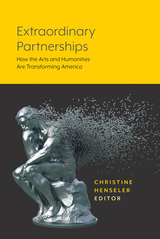
READERS
Browse our collection.
PUBLISHERS
See BiblioVault's publisher services.
STUDENT SERVICES
Files for college accessibility offices.
UChicago Accessibility Resources
home | accessibility | search | about | contact us
BiblioVault ® 2001 - 2024
The University of Chicago Press









